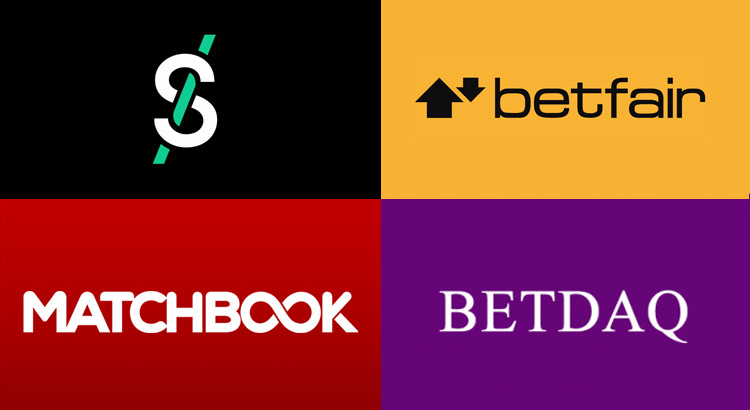
Instead of betting through sportsbooks, bettors can bet against one another in a sports betting exchange. This new kind of betting is based on the same concepts as stock markets, except that rather than exchanging stocks or futures, the transaction here is for the outcomes of sporting events or commonly called odds and occurs between two gamblers with opposite viewpoints of a particular match.
Betfair, a company created by a bettor and professional marketeer who foresaw the potential of peer-to-peer (P2P) in the betting market, launched the betting exchange in 2000. Betfair is now the world’s largest online betting exchange with good reason. The sheer number of markets accessible vastly outnumbered their competitors, providing bettors with more ability to raise cash when it needs it and options to choose from.
How Does Betting Exchange Work?
A betting exchange may seem intimidating if you are used to traditional bookies. However, once you grasp the distinctions and how they work, there are several possibilities to trade and profit from the enhanced value, whether through better odds or closing in a profit before the outcome is confirmed.
The primary reason to use a betting exchange is if a bookmaker refuses to offer the bet you want because it’s considered too risky. You can ideally wager on anything in exchange as long as there’s somebody prepared to bet on the opposite side.
You can usually discover greater odds and more value in addition to a broader selection of bets. Unlike most bookmakers, you must pay a fraction to make a profit. Many bets placed by other bettors determine the odds on a betting exchange.
Furthermore, if the game is most likely in a draw condition, the user can bet the draw before the game begins and ends. In this new game mode, the odds do not remain constant but change over time in the middle of the match, allowing the money to be used to ensure a statistical profit.
What Differs It From Traditional Bookmakers?
Betting in a traditional bookmaker vs. betting on a betting exchange has significant differences. Several bettors grow frustrated and dissatisfied with the process if they don’t grasp how a betting exchange works. Although the most apparent factor is that you can only back the odds when betting at a traditional bookmaker while you can lay the odds with an exchange.
Furthermore, betting exchanges are not like sportsbooks in that the money is in a different method. Bettors can wager on any outcome, and bookmakers will lay bets themselves, putting up their money if the customer’s bet wins. On the other hand, betting exchanges do not place bets themselves, instead relying on other users to back and lay bets against one another.
Betting exchanges charge a small commission fee on each wager placed to make money. This charge is calculated as a proportion of the expected winnings. However, big companies like Betfair exchange use the Market Base Rate (MBR) approach to determine how much commission fee you will pay.
Finally, betting exchanges frequently offer better odds than bookies. This is because their market is open to the public, and their odds are decided by the public, whereas bookmakers establish their odds. Customers can get better deals due to this, which is one of the main reasons why betting exchanges are popular.
What Is Back And Lay Betting Exchange?
In any place on a betting exchange, there are two types of players. Users can compete against one another and construct their marketplaces, with one backing and the other laying. One of the key benefits of the betting exchange concept is the freedom of users to operate as either bettors or bookmakers.
Back Betting
When you place a back bet, you’re wagering on a specific outcome. Back betting is simply saying, “this team will win the match.” Back betting is the most prevalent sort of bet with bookies, and you’ve probably done it without even realizing it if you’ve placed a bet.
Lay Betting
When you lay a bet, you’re wagering against the outcome and taking on the role of the bookmaker. Assume you’re the bookie in this scenario. Your liability will always be displayed to you while deciding what stake you are willing to accept. Moreover, you can only accept bets if your exchange account balance is sufficient to meet your liability.
This stake value is the amount you are ready to accept as a wager, and it is the total you will win if the outcome is in your favor.
Conclusion
Some bettors avoid betting exchanges because the notion appears to be unnecessarily complicated, especially in the lay betting part. They are, however, a terrific way to get the most incredible odds and increase your chances of winning. That is why it is vital to study the topic from different perspectives and practice with real money on the market to comprehend its operation in all aspects and characteristics fully.



















.jpg?v=1.014689161)





.png?v=1.014689161)
















